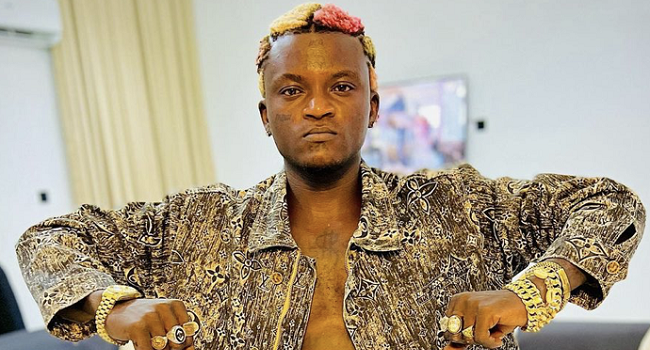On March 25th, 2023, news broke that popular Nigerian musician, Portable, had been granted bail and released from custody after spending 72 hours in police detention.
Portable, whose real name is Omogbolahan Akanni, was arrested by the Lagos State Police Command on March 22nd, 2023, along with five other people, on suspicion of involvement in a robbery incident in the Alimosho area of Lagos. The arrest was made after the police received a tip-off from a member of the public.
Following his arrest, Portable was taken to the State Criminal Investigation and Intelligence Department, Panti, Yaba, where he was held in custody pending the outcome of investigations into the alleged robbery.


However, on March 23rd, Portable’s legal team filed an application for bail, which was granted by a magistrate court in Ebute Meta, Lagos.
As part of his bail conditions, Portable was required to provide two sureties who were to sign a bail bond of N500,000 each. He was also required to deposit his international passport with the court and report to the police every Monday and Friday pending the conclusion of investigations into the alleged robbery.
After meeting the bail conditions, Portable was released from custody on March 25th, 2023, to the cheers of his fans who had been anxiously awaiting news of his release.
Portable’s lawyer, Barrister Wale Ojo, confirmed that his client had met all the bail conditions and had been released from custody.
The news of Portable’s release was greeted with mixed reactions on social media, with many of his fans expressing their joy at his release while others expressed disappointment at the allegations against him.
Some critics also questioned the decision to grant bail to a suspect in a robbery case, arguing that it could undermine efforts to combat crime in the country.
READ ALSO: Police Seal Labour Party Secretariat In Imo
However, the decision to grant bail to a suspect is not unusual in the Nigerian justice system, as the law presumes every accused person innocent until proven guilty.
The decision to grant bail is based on a number of factors, including the severity of the crime, the strength of the evidence against the accused, and the likelihood of the accused fleeing or interfering with the course of justice.
In Portable’s case, the magistrate court was satisfied that the musician had met the bail conditions and was not likely to interfere with investigations or abscond.
The court also took into consideration the fact that Portable is a public figure with a large fan base and that his continued detention could lead to unrest among his fans.
However, Portable’s release on bail does not mean that he is cleared of the allegations against him. The police are still investigating the alleged robbery, and if there is sufficient evidence to prosecute Portable and his co-accused, they will be charged and brought before a court of law.
In conclusion, the release of Portable on bail after 72 hours in custody is a reminder of the importance of due process and the presumption of innocence in the Nigerian justice system.
While the decision to grant bail may be controversial in some quarters, it is important to respect the decision of the court and to allow the police to complete their investigations into the alleged robbery.
The case also highlights the need for greater collaboration between law enforcement agencies and the public in the fight against crime in the country.



































































